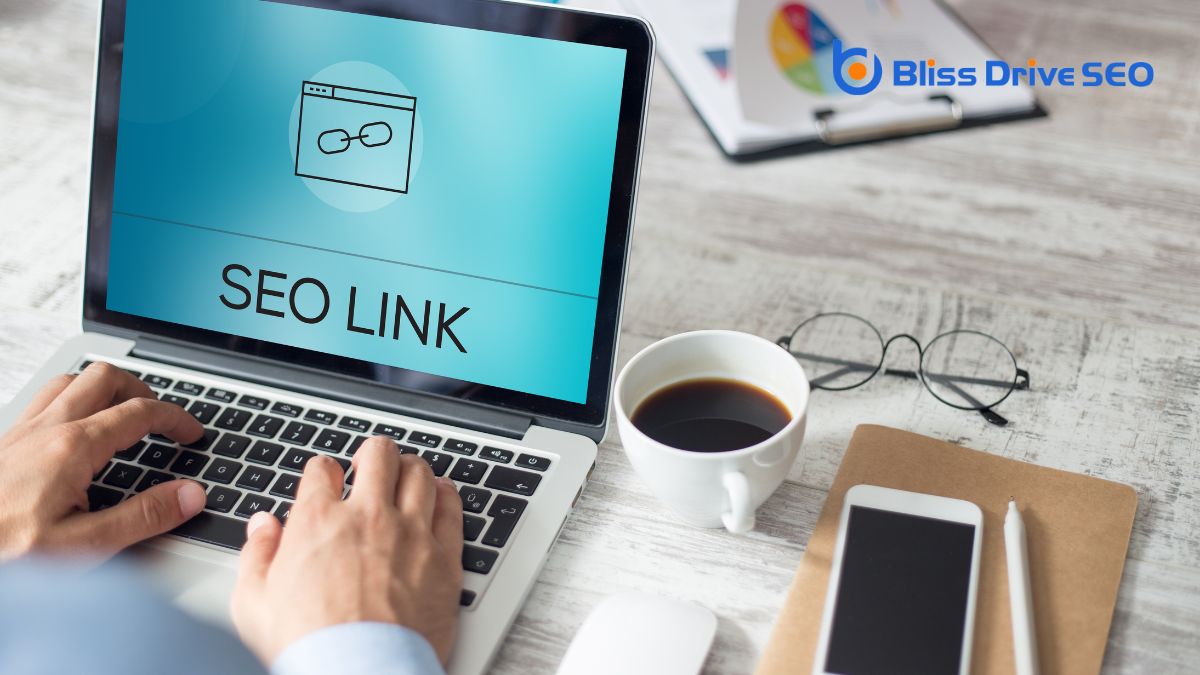Digital Marketing Services
Learn More About Us

To enhance your internal linkingLinks that connect different pages on the same website. SEO, use descriptive anchor textThe clickable text in a hyperlink, important for SEO as it provides context for the linked page. that provides clear context and includes relevant keywordsWords or phrases that users type into search engines to find information.. This aids both users and search engines in comprehending the link's purpose. Link to high-authority pages within your site to distribute link equity and enhance your site's credibility. Finally, regularly audit your internal links to identify and fix broken links and maintain proper link distribution. By following these tips, you'll enhance your site's SEO and user experience. There's more to explore that can additionally optimize your strategy.

When it comes to effective internal linking for SEO, using descriptive anchor text is crucial. Descriptive anchor text provides clear context about the linked content, making it easier for users to grasp where the link will take them. This enhances user experience and engagementThe interactions that users have with a brand’s content on social media. as users navigate your site with assurance.
Incorporating keywords in your anchor text is a strategic internal linking method. It indicates the relevance of the content to search engines, boosting your SEO efforts. Avoid generic phrases like "click here" and instead, choose specific, descriptive anchor text that clearly indicates the topic of the linked page. This approach helps search engines crawl your site more efficiently and comprehend the content better, potentially improving your page rankings.
Conducting an internal link audit can help identify opportunities to use more descriptive anchor text. As you assess your internal links, focus on creating contextual links that add value. Well-crafted anchor text not only enhances search engine performance but also boosts click-through rates.
Linking to high-authority pages is a powerful internal linking strategy that can enhance your site's SEO performance significantly. By connecting your less authoritative pages to high-quality ones, you distribute link equity, which can boost the ranking potential of those newer or less authoritative pages. This approach also indicates to search engines the importance and relevance of specific content on your website, improving your overall site credibility.
Here's why you should link to high-authority pages:
Implementing this internal linking strategy not only enhances your SEO value but also enhances the overall user experience, assisting in elevating your site's ranking and credibility.

Conducting regular audits of your internal links is significant for maintaining optimal SEO performance and a seamless user experience. Using tools like Google Search ConsoleA tool by Google that helps monitor and maintain your site's presence in search results. or Semrush, you can easily conduct an internal link audit. This process will help you identify broken links and orphaned pages, which can disrupt the authority flow and harm your site's SEO health.
By regularly auditing your internal links, you're ensuring proper link distribution throughout your website. This is essential for maintaining a well-structured site that both users and search engines can navigate easily. Monitoring your internal links allows you to spot issues early, so you can address them promptly and optimize your linking strategies effectively.
An internal link audit helps you discover opportunities for improvement, making your site more sturdy and user-friendly. It also enhances your search engine rankings by ensuring that your links are functioning correctly and that your authority flow remains intact.
Regular audits make it easier to maintain the overall SEO health of your site and keep your content interconnected in a meaningful way. By staying proactive with your internal link audits, you create a more efficient and optimized website.
To optimize internal links for SEO, use keyword-rich anchor text, link to important pages, diversify anchor text and audit regularly. Utilize tools like Google Search Console to analyze performance and make data-driven optimizations.
To optimize internal SEO, start by auditing existing links. Then, identify key pages and establish a hierarchy. Create a strategic linking plan between related content, and finally, monitor and track link performance to guarantee ongoing improvement.
Yes, internal linking boosts SEO. You help search engines navigate and index your site better, which improves rankings. It also enhances user experience and passes authority between pages, signaling relevance and importance.
You'll improve your website's internal linking by using keyword-rich anchor text, linking strategically to important pages, mixing link types, auditing regularly with tools, and placing links to enhance user engagementThe level of interaction and involvement users have with social media content. and site navigation.
By using descriptive anchor text, linking to high-authority pages, and regularly auditing your internal links, you can greatly enhance your site's SEO performance. Don't underestimate the power of a well-structured internal linking strategy. It not only enhances user experience but also helps search engines understand your site's hierarchy and relevance. Start implementing these tips today, and you'll see noticeable improvements in both your rankings and user engagement. Keep optimizing, and watch your website thrive!
